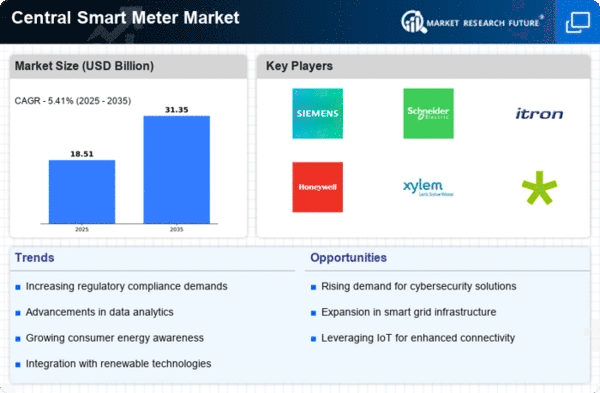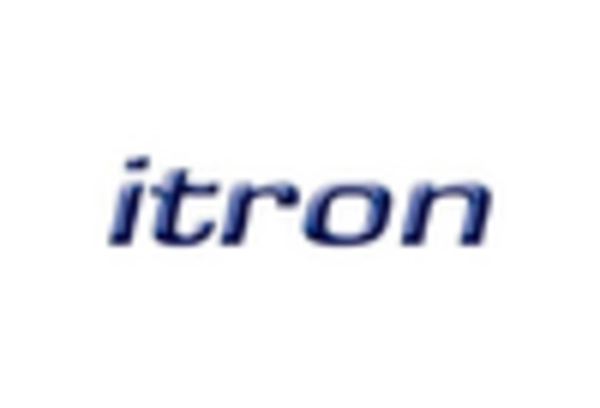Government Initiatives and Support
Government initiatives are crucial in propelling the Global Central Smart Meter Market Industry forward. Many countries are investing in smart grid technologies as part of their energy transition strategies. For example, various national policies encourage the deployment of smart meters to enhance grid reliability and reduce energy losses. These initiatives are expected to contribute to a compound annual growth rate of 5.87% from 2025 to 2035, indicating a robust commitment to modernizing energy infrastructure. Such support not only stimulates market growth but also aligns with global sustainability goals.
Growing Demand for Energy Efficiency
The Global Central Smart Meter Market Industry is experiencing a surge in demand driven by the need for enhanced energy efficiency. Governments worldwide are increasingly implementing regulations that mandate the adoption of smart metering technologies to optimize energy consumption. For instance, the global market is projected to reach 16.7 USD Billion in 2024, reflecting a growing recognition of the importance of energy management. This trend is likely to continue as utilities seek to reduce operational costs and improve service delivery, thereby fostering a more sustainable energy landscape.
Integration of Renewable Energy Sources
The integration of renewable energy sources is transforming the Global Central Smart Meter Market Industry. As more countries commit to reducing carbon emissions, the need for smart meters that can manage decentralized energy generation becomes critical. Smart meters facilitate the monitoring and management of energy produced from renewable sources, ensuring efficient grid operation. This shift towards renewables is expected to bolster market growth, as utilities invest in smart metering technologies to accommodate the complexities of renewable energy integration. The industry's evolution is indicative of a broader transition towards sustainable energy systems.
Rising Consumer Awareness and Engagement
Consumer awareness regarding energy consumption is on the rise, significantly impacting the Global Central Smart Meter Market Industry. As households become more conscious of their energy usage, the demand for smart meters that provide detailed consumption data increases. This trend is further supported by educational campaigns and initiatives aimed at promoting energy conservation. Consequently, utilities are adopting smart metering solutions to meet consumer expectations, thereby driving market growth. The increasing engagement of consumers in energy management is likely to shape the future landscape of the industry.
Technological Advancements in Metering Solutions
Technological innovations play a pivotal role in the Global Central Smart Meter Market Industry. The integration of advanced communication technologies, such as IoT and AI, enhances the functionality and reliability of smart meters. These advancements facilitate real-time data collection and analysis, enabling utilities to respond promptly to energy demands. As a result, the market is expected to expand significantly, with projections indicating a growth to 31.3 USD Billion by 2035. This technological evolution not only improves operational efficiency but also enhances customer engagement through better energy usage insights.
















